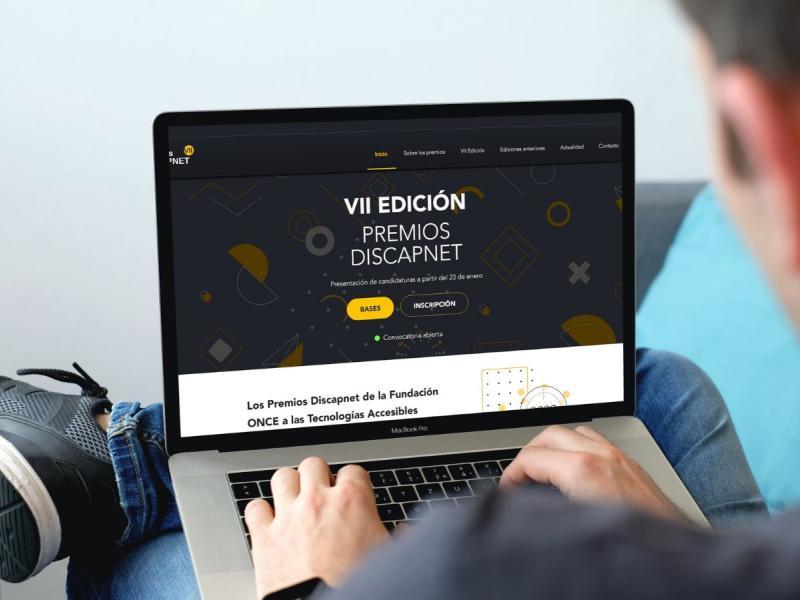
At the meeting held this Friday at the headquarters of ONCE Foundation.
The jury of the VII edition of the Discapnet Awards for Accessible Technologies of ONCE Foundation has selected 12 finalists from all the nominations submitted among the four categories.
These awards recognize the best initiatives in the field of technologies applied to improving the quality of life of people with disabilities, as well as companies or organizations that have been working continuously in the field of accessible technology.
As in the previous edition, the awards are divided into four categories: best product or service; person, entity or organization; entrepreneurship project with social impact; and media.
The Category A awards the best product or service based on technologies for improving the quality of life of people with disabilities that is already available on the market. In this edition, the jury has selected as finalists:
- 1. Digital Health for All, an accessible telemedicine platform that facilitates proper online care for people with disabilities developed by EVER HEALTH.
- 2. INDIe4All, an authoring tool that facilitates the creation of accessible digital resources for learning and has been launched by the Polytechnic University of Cartagena (UPCT).
- 3. Laundry ID, a system aimed at facilitating the industrial laundry process for people with disabilities, promoted by the Instituto de Robótica para la Dependencia.
In the Category B, the award goes to the person, company, entity or organization that has stood out the most for its continuous track record in improving accessibility to technology. The following are eligible for this award:
- 1. The Spanish Center for Subtitling and Audio Description (CESyA), which has an extensive track record in the research and application of accessibility features on audio-visual content.
- 2. Technological innovation at the service of social inclusion, from the Technology and Neuroscience Association, NEUROLAB, for its trajectory characterized by promoting rehabilitation through ICT.
- 3. SmartUMU for all, from the University of Murcia, a work in which several technological developments have been made to promote educational inclusion at the university.
The Category C recognizes the best entrepreneurial project with social impact to improve the quality of life of people with disabilities through ICT. The finalists are:
- 1. SuperGiz Project, from Asociación de Autofabricantes. It is a prosthesis system for upper limbs that does not imitate the morphology of a hand and is characterized by being customizable, "light, practical and affordable". Manufactured by means of 3D printing, clinical studies are being carried out so that it can form part of the Social Security product catalogue.
- 2. Easier Health, by Sandoz Iberia and Plena Inclusión Madrid. This is an adaptation of drug leaflets to easy reading and made available on the website.
- 3. Lucca - Your accessible home, by Lucca. Mobile application that helps to manage home automation and energy efficiency.
Finally, section D will award the media "that has stood out the most for disseminating to society initiatives, projects, products and services related to accessible technologies" contested by:
- 1. Usable and Accessible, a blog by Olga Carreras, an expert in ICT accessibility "with wide recognition in the sector". She makes a great dissemination of accessible technology: legislation, standards, evaluation techniques, etc
- 2. Expansión newspaper. "It stands out for the volume of topics introduced on accessibility and for the depth with which they are addressed".
- 3. Por tres razones (For three reasons) from Radio Nacional de España, a program in which disability-related issues are addressed "in a very natural way, highlighting the protagonists of the stories they transmit"
AWARDS
As in previous editions, the prize money will be economic in all categories: the winners in sections A, B and D will receive 5,000 euros, while the winning work in C will receive 15,000 euros. In the latter case, the money will have to be used entirely for the development of the awarded project.